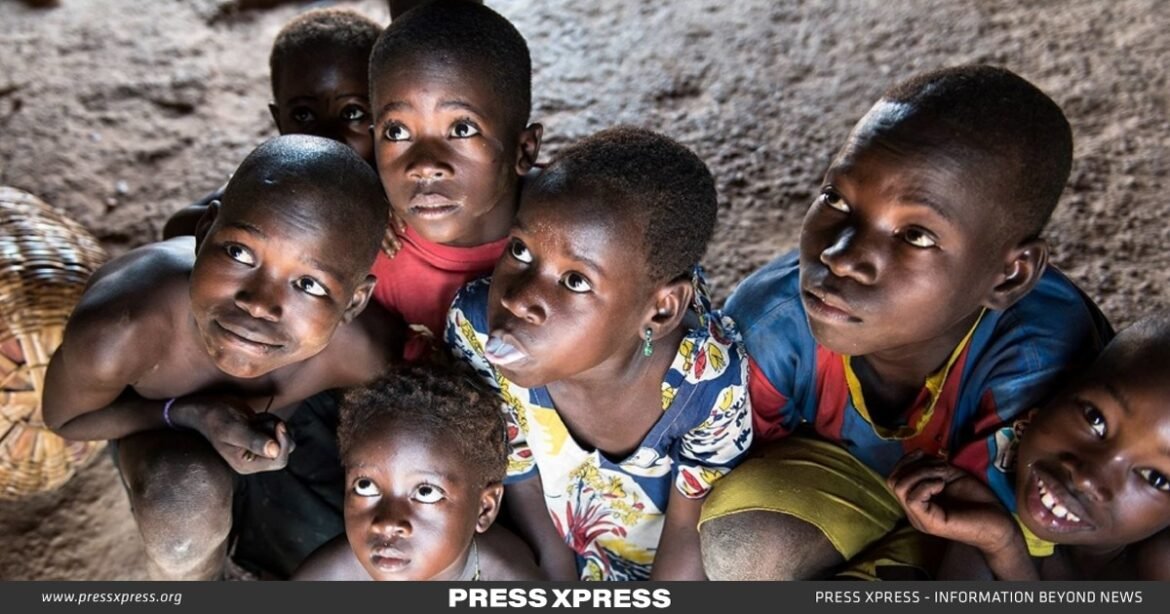According to UNODC Global Report on Trafficking in Person:
- 51,675 trafficking victims in 2020 spanning 166 countries
- 18% of those trafficked were female children
- 18% of those trafficked were female children
- Average rate of 1 person per 100,000 globally in 2020
Kenya’s government is embarking on a groundbreaking initiative to overhaul its child welfare system. In a significant announcement, a government minister has declared that all privately owned orphanages and children’s homes will be abolished within the next eight years. This ambitious plan aims to transform the way Kenya cares for its vulnerable children and ensure their well-being is prioritized
This decision follows a growing worry about child trafficking and abuse associated with these unapproved and unregulated private institutions. The government intends to substitute these facilities with community-based care models, providing children with safer and more nurturing settings.
Concerns Around Child Trafficking and Abuse
Private children’s homes in Kenya have come under scrutiny due to numerous reports of child trafficking and abuse. These institutions, often operating without adequate oversight, have been implicated in a series of violations of children’s rights. The lack of proper documentation and tracking mechanisms for children leaving these homes has worsened the situation, leaving authorities with minimal information about their whereabouts or the conditions they are placed in.
Growing concerns about child safety and well-being led the Kenyan government to maintain a 20-year moratorium on adoption, originally established in 2014. This decision was largely influenced by the reported deficiencies in the legal provisions and practices related to guardianship, foster care, and adoption. It came after a technical assessment review conducted by the Government of Kenya and UNICEF, which highlighted significant loopholes in adoption laws, particularly concerning local children adopted by foreigners. The review uncovered that these loopholes were frequently exploited, resulting in the commercialization of adoptions and endangering the welfare of children.
Moving Towards a Community-based Care Model
With the intended prohibition of private children’s homes, the Kenyan government aims to transition to a community-based care model. The government is confident that this approach will provide children with safer and more nurturing environments, fostering better integration within the community. This change aligns with actions taken by other nations like Rwanda, which has similarly prohibited foreign adoption while reinforcing local child protection mechanisms.
Regulation of Adoption and Foster Care
Apart from the planned prohibition of private children’s homes, the Kenyan government has also implemented strict regulations regarding adoption. The Children’s Bill of 2021, which is currently undergoing parliamentary review, seeks to enhance the adoption process by addressing existing loopholes and ensuring the safety of children. Furthermore, the bill maintains the prohibition on foreign nationals adopting, in response to the growing concerns about child trafficking.
Moreover, the Kenyan government is also striving to establish regulations for children’s homes, charitable organizations, and state actors involved with children. The objective is to ensure that these entities operate in accordance with the law, respecting the rights of children and providing them with the necessary care and support. The government is particularly focused on ensuring that all children, including vulnerable groups such as those with disabilities or HIV/AIDS, receive equitable treatment and opportunities.
Consequences of the Move
The prohibition of private children’s homes in Kenya marks a substantial transformation in the country’s child protection strategies. Despite the formidable obstacles it presents, this decision also unlocks possibilities for implementing systemic reforms that prioritize the rights and welfare of children. Kenya’s shift toward a community-based care approach represents a courageous move aimed at guaranteeing a safer and more nurturing environment for its youth. If it proves effective, it may become a blueprint for other countries facing comparable challenges.
World-wise Child Trafficking
Child trafficking is a pressing global issue, constituting a subset of the larger problem of human trafficking. This nefarious practice persists to varying degrees across almost every nation, from the least developed to the most advanced. The United Nations Office on Drugs and Crime (UNODC), renowned for its expertise in combatting human trafficking, shed light on the state of child trafficking worldwide through its 2022 Global Report on Trafficking in Persons.
The UNODC’s 2022 Global Report on Trafficking in Persons, which drew from the experiences of 51,675 trafficking victims in 2020 spanning 166 countries, revealed that roughly 18% of those trafficked were female children, and another 17% were male children. In terms of overall incidence, the report estimated that instances of human trafficking were identified at an average rate of 1 person per 100,000 globally in 2020.
Nevertheless, the report underscores a significant discrepancy between the number of victims detected and the actual prevalence of trafficking, a figure that remains elusive. Furthermore, the rate of detection is not necessarily correlated with the true rate of trafficking. In highly developed nations, where law enforcement agencies are well-equipped and trained, detection rates are likely much higher. In contrast, less developed countries often grapple with limited resources and training for law enforcement, which diminishes their ability to identify instances of human trafficking.
How can child trafficking be stopped?
There is no easy fix for child trafficking because there are numerous complex contributing elements. Nevertheless, educating kids about the dangers of child trafficking, including grooming and extortion, and teaching them to be watchful is one of the greatest strategies to reduce it. Both strict rules and a high conviction rate for those caught trafficking children serve as effective deterrents.
conclusion
Kenya’s government is taking bold steps to reform its child welfare system by abolishing privately owned orphanages and children’s homes over the next eight years. This decision arises from concerns about child trafficking and abuse within unregulated institutions. Transitioning to a community-based care model, along with strict regulations on adoption and children’s homes, aims to protect children’s rights and well-being. While challenges lie ahead, this move represents a significant transformation and potential blueprint for addressing global child trafficking issues through education, enforcement, and deterrence.


